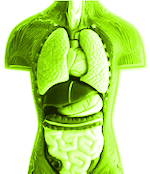How can I protect my liver?

The easiest way to limit and prevent liver damage is to treat HCV with modern DAAs.
These drugs are safe and very effective, but high DAA prices has limited access to HCV treatment for some people.
While you are waiting for HCV treatment, you can support liver health with regular monitoring with your doctor. The following lifestyle changes can really help.
Lifestyle changes: diet, exercise, alcohol
Things that are good for your general health like a balanced diet, keeping active and not smoking, are also good for your liver.
These include:
- Drink less, or stop drinking alcohol. The less you drink, the better for your liver. Sometimes drinking less – or not at all – is more important than treating HCV.
- Get vaccinated against hepatitis A and B. Other viral infections in your liver can worsen HCV.
- A good diet includes eating less salty processed food, and more fresh fruit and vegetables, complex carbohydrates (whole grains, breads, rice, pasta), food that is low in fat and high in fibre and an adequate amount but not excessive amount of protein.
- Maintain a normal weight; being overweight increases your risk for fatty liver.
- Drink plenty of water to help your liver filter waste and toxins.
- Three cups of coffee (with or without caffeine) a day can delay fibrosis progression and lower the risk of liver cancer.
- Eating dark chocolate (85% cocoa) every day has been linked to better liver health and reduced risk of heart problems.
- Ask questions and get support. Talk with other people who are living with HCV or coinfection.
See: living with HCV and life style changes.
Last updated: 17 August 2017.
